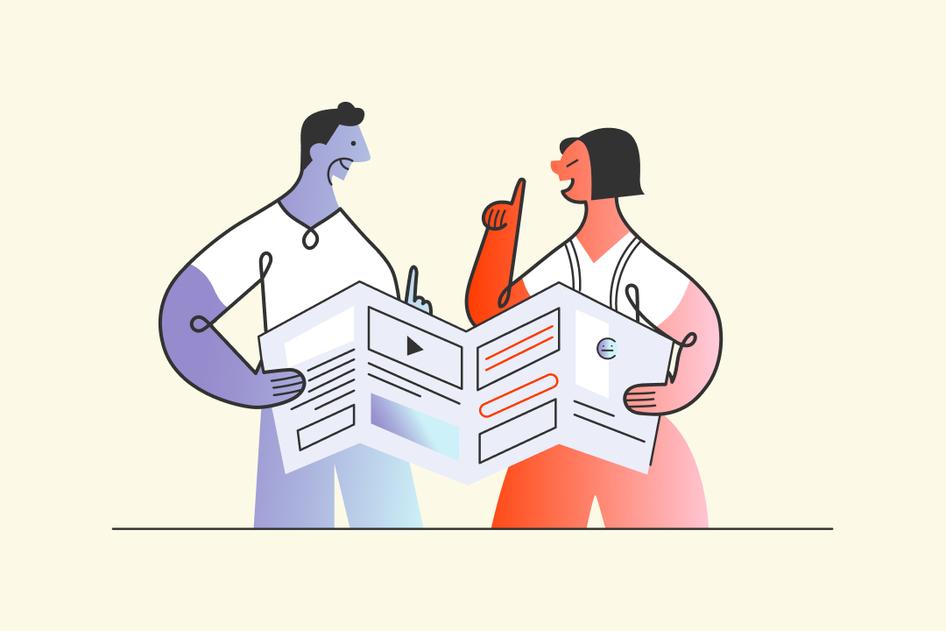Learn / Webinars / Article
7 tips from behavioral science to increase your conversions
Phill Agnew, host of the UK’s top marketing podcast Nudge and Senior Product Marketer at Buffer, talks us through the tools we can use to take our marketing from meh to mesmerizing—with science!
If you've been wondering how to take your B2B SaaS marketing strategies to the next level, the answer might be lying in the realm of behavioral science.
Hotjar’s insightful webinar with Phill Agnew, Senior Product Marketer at Buffer and host of the Nudge Podcast, sheds light on how to use the principles of behavioral science to enhance your marketing game and drive conversions. Phill stresses the importance of understanding and leveraging our inherent biases and the science behind our actions to craft more effective marketing strategies. He shares seven powerful tools from behavioral science that, when properly applied, lead to substantial growth in conversions:
Social proof
The endowment effect
Loss aversion
Anchoring
The Pratfall Effect
Scarcity
Hyperbolic discounting
Unlocking the power of biases and behavioral science
Understanding and using biases is a critical component in marketing. Social proof, the phenomenon where people imitate the actions of others, is a potent tool to increase conversions. Examples include displaying customer testimonials on your website or showcasing the number of users already benefiting from your product.
The endowment effect, a bias where people value things more once they own them, is also a driving factor that increases customer retention. Similarly, anchoring can influence customer perception of your prices: by first introducing a higher price point, subsequent prices seem more reasonable and attractive.
Embracing imperfection: the Pratfall Effect
Phill shares how showcasing a flaw or weakness could actually make a product or service more appealing, a concept known as the Pratfall Effect. For example, a marketing campaign can benefit from incorporating elements of negativity or imperfection, enhancing relatability and trust with your audiences.
An excellent example comes from the world of sports. Australian speed skater Steven Bradbury clinched a gold medal at the Winter Olympics, not despite his weakness, but because of it. The same principle has been effectively employed by brands such as Marmite.
Free trials and hyperbolic discounting
The power of free things can't be understated. Offering a free trial instead of a discount, for example, can significantly boost your conversions.
Use hyperbolic discounting, where you break prices broken down into smaller increments, to make your product pricing appear more appealing. Moreover, creating a 'curiosity gap' or leaving a cliffhanger can increase click-through rates significantly.
Combating cart abandonment: loss aversion and scarcity
Loss aversion, the principle where people prefer avoiding losses over acquiring equivalent gains, can be implemented effectively in abandoned cart emails. By emphasizing the limited time to retrieve their cart, you nudge customers to complete their purchases. Coupling this strategy with scarcity and time limits further encourages customers to act quickly.
You can see successful applications of this strategy in Skyscanner's flight search emails, which highlight popular flights and provide social proof, nudging customers to complete their booking.
A scientific approach to marketing
Mastering the art of behavioral science makes a substantial difference to your marketing results. For those eager to learn more, Phill recommended two books: Choice Factory by Richard Shotton and Influence by Robert Cialdini.
By delving into behavioral science, marketers uncover a treasure trove of techniques to help them stand out in a saturated market and drive meaningful engagement and conversions. It's time to start thinking differently about marketing—it's time to start thinking scientifically.
To gain more insights and learn more about the application of behavioral science in marketing, make sure to attend our future webinars and follow our blog.
About the guest speaker
Phill Agnew is a Senior Product Marketer at Buffer and host of the Nudge podcast, one of the UK's fastest growing business podcasts dedicated to behavioral science. Phill specializes in consumer behavior, specifically about how to apply behavioral science at each stage of the marketing funnel. He takes insights from his podcast interviews with researchers, authors, and pioneers, and condenses them into useful advice that any marketer can use to improve their value proposition.
